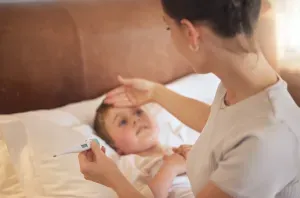Screen Time: How Much Time Is Too Much For Kids?
Televisions, smartphones, computers, and tablets are all devices both adults and children use for information, entertainment, and social interaction. As with most modern conveniences, it is best to use them in moderation. Unfortunately, many kids (and adults) spend too much time looking at screens. How much screen time is too much for kids?
Recommended Guidelines
There are many guidelines to examine. For example the American Academy of Pediatrics recommends that children younger than two years old should have no screen time, or no more than one hour per day.
There is really no single answer when it comes to how much screen time kids should have. It can vary from one family to another, from one day to another, and from one child to another. There is no perfect formula.
However much time your child is spending looking at screens, it should be less.
Some possible exceptions to this general rule of thumb include schoolwork (necessary screen time) and in many cases, patients with autistic spectrum disorder, who use screens for communication and learning.
The Consequences of Too Much Screen Time
A recent study published in the Journal of the American Medical Association looked at 2,400 children in Canada. They discovered those children from ages 2 to 3 with greater amounts of screen time were “associated with significantly poorer performance” when their development was assessed at age 3 and 5.
Allowing disruptive children to watch TV or play with devices might calm them down, but too much can affect their mental development.
One challenge for parents is to carefully monitor how much time your child is spending on a device. You may be unpleasantly surprised.
Too much time on screens can lead to social, emotional, and attention problems including the following issues:
- Obesity
- Irregular sleep
- Behavioral problems
- Impaired academics
- Violence
- Less time for play
Physical activity and social interaction is important for a child’s development.
Tips for Parents to Reduce Kids’ Screen Time
You are the best model for your children. Set your own “no device time” like during dinner, at least an hour before bedtime, or during any family or play time.
Shut off background TV as this is distracting when kids are doing schoolwork.
Allow no devices in their bedroom. Turn them off at least one hour before bed.
Allow no eating or snacking while on devices as this turns into increased screen time.
Encourage activities like reading, physical play, and arts and crafts.
Post a bulletin board motto for the family: “SIT LESS—MOVE MORE.”
Contact Pediatric Associates for more tips to reduce kids screen time or to identify any physical or social issues resulting from it.
The post Screen Time: How Much Time Is Too Much For Kids? appeared first on Pediatric Associates, Inc..







